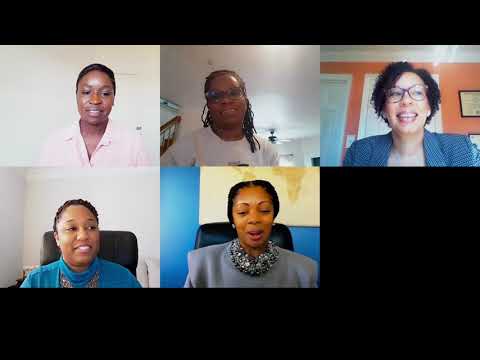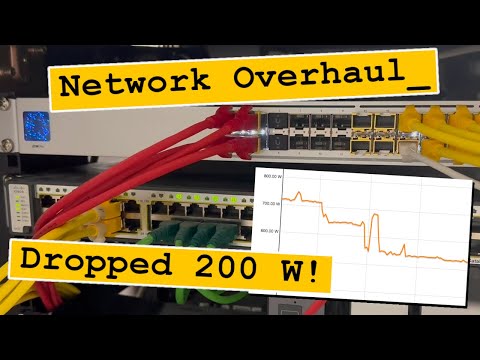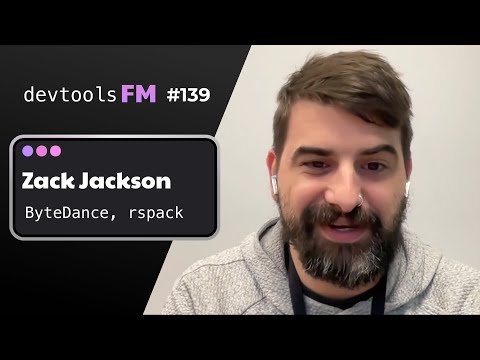Combatting COVID-19 Vaccine Hesitancy

[Leah Watson] Good afternoon, everyone, and welcome. Thank you all for taking the time out of your busy schedules to chat with me. I am very excited for us to chew the fat a little bit on several topics surrounding the COVID-19 pandemic response, so the viewers will have a good idea of the variety of backgrounds of people involved in the pandemic response. Why don't we first do a round robin of brief introductions before we get into it? So please tell the viewers who you are, your title, and how long you've been at BARDA. And maybe start with Tremel. [Tremel Faison] Hi, I'm Tremel Faison.
I've been at BARDA for six years and I'm the Director of Regulatory and Quality Affairs. [Leah Watson] Okay. Marva. [Marva Taylor] Good afternoon. I'm Marva Taylor.
I am a Biologist slash Project Officer in CBRN, and I've been with BARDA for five years and nine months. [Leah Watson] Rekia. [Rekia Speight] Hello, I am Rekia Speight.
I am a Program Analyst with BARDA, with the Division of Research, Innovations and Ventures (DRIVe). And I've been with BARDA for a little over a two years in July. [Leah Watson] Last but not least, Kristen. [Kristen Herring] I am Kristen Herring, I've been with BARDA about five years now. I'm a biochemist by training and I am a Project Officer within the chemical medical countermeasures branch. [Leah Watson] Okay.
And I guess I need to formally introduce myself. I am Leah Watson and your moderator for today, and I'm a Biologist in the Influenza and Emerging Infectious Diseases Division, and I'm a newbie compared to you all - I have only been here for nine months. Okay, so now that we got that all out of the way, so let's get into it. For the viewers, BARDA is a core component of the Office of Assistant Secretary for Preparedness and Response, or ASPR, and contributes to the ASPR mission to lead the country in preparing for and responding to health emergencies. The objective of this panel discussion is to highlight BARDA's role in the COVID-19 pandemic response and to shine some light on you, BARDA employees, who have contributed significantly to the pandemic response.
Starting with Kristen, what is your background and role in the pandemic response? And what does it mean to you, being from one of the communities most disproportionately affected by COVID, to have participated in this response? [Kristen Herring] So as I mentioned, I am a project officer within the chemical medical countermeasures branch, which does not deal at all with viruses or COVID. However, right when COVID occurred, it was all hands on deck. And so for the last year, I've been involved on the COVID therapeutics team, initially starting out reviewing proposals, you know, making decisions on funding, and then ultimately being involved in the negotiations and award of some of the monoclonal antibody therapeutics that are out there now, and I am the COR for one of them as well. And to be part of this really is, has got to be one of the highlights of my professional career, right? Because in graduate school, you always think about, you know, how is what I'm doing at the bench going to translate to, you know, actually helping someone in the real world, you know, in real life? And to know that I am directly impacting people, you know, my community in particular is that, like I said, it's the highlight of my career.
[Leah Watson] But can we just go back just a little bit? You mentioned a COR, could you please explain for the audience what a COR is? [Kristen Herring] Yes, absolutely. Apologies. So, Contracting Officer Representative. So I'm the you know, the technical lead that acts on behalf of the contracting officer, interacting with the company, day to day, you know, managing things. [Leah Watson] OK.
Great. So um, Rekia, maybe you next? [Rekia Speight] Yes, so I work for the Division of Research, Innovation, and Ventures team, and during the COVID-19 response, we all were sent to different teams within BARDA. And my role within BARDA was to schedule all of the market research tools, which gathered the presentations that went along with the market research calls to get to the subject matter experts, so they're well informed before the policy even began. So it was very... It allowed me to participate one bit in that role, because I had firsthand knowledge of what actually was going on with it, so it was definitely an honor to participate within that COVID-19 team.
[Leah Watson] So what about your background helped you with market research? Or could you just explain a little bit more market research is? [Rekia Speight] Yeah, so the market research calls are given to the subject matter expert to basically go through the different companies that are applying to receive funding from BARDA for their research and their new technologies, vaccines, technologies and diagnostic technology. So scheduling those calls are very important for the overall goal for BARDA. [Leah Watson] OK, great. Marva, would you please answer the same question, or would you like me to repeat? [Marva Taylor] No, sure.
So, I am a Biologist slash Project Officer. And I'm usually in the CBRN vaccines group. So that has, I guess, helped me transition well. I feel like I'm on loan to the emerging infectious disease group, helping with vaccines for Moderna. And my background prior to coming to BARDA is vaccine manufacturing, so that really came in handy. I am a COR.
Kristen mentioned what CORs do, and so I am a COR for the Moderna contract. And Moderna is unique, because it has a contract with BARDA and the DoD. So I'm working both sides of the coin, so to speak. And what it means to me is, it's great in a sense to help spread the word. Our communities are definitely impacted by COVID. And it helps me, when given the opportunity, to push some confidence in the vaccines or the therapeutics.
I mean, I've heard so many different takes on what the vaccines will do to you. Kristen is laughing, but it's so true. You hear so many things about what these vaccines will do to you. And so it gives me a platform when I'm talking to my 80 year old aunt to say, Hey, you know, can you please get vaccinated? And she says, Well, I heard I grow a beard if I get vaccinated. No, ma'am, you're not going to grow a beard.
So just please, you know, I'd like to be able to see you in 2021. I didn't see you in 2020. I’d like to be able to see you guys in 2021.
So that's what it means to me. [Leah Watson] Tremel. Same question.
[Tremel Faison] Thank you. Yeah, so yeah. Um, so as the Director of Regulatory and Quality Affairs, well, first, I have to say that I'm a biologist by training, and then I have a Master's degree in regulatory, biomedical research and development. Um, I became the Director of Regulatory and Quality Affairs about two months before the pandemic.
So it's really been a crazy baptism by fire. That's a part of my... As part of my job, I oversee three branches, and each one of those branches has been intimately involved in the COVID-19 response. Our regulatory operations branch has actually...
We've sponsored two EUAs for therapeutics. Our regulatory branch has served on the project coordination team for therapeutics, vaccines and diagnostics. We've interacted closely with the FDA, kind of serving as a liaison for when issues come up, you know, working with the teams, and especially in vaccines, really, really intimately over at FDA. And then my quality branch, or our quality branch, has been responsible for product acceptance, and for auditing the facilities that are producing the vaccine.
And as you know, we're doing all those as well as our non-COVID work. So it's, like I said, it's... I've learned a tremendous amount, like Kristen said, it's the highlight of my career to be able to do this. And, you know, I'm just, yeah, so happy to be at BARDA at this time, and never thought that I'd be here, but here I am. And, you know, I'm... hopefully I'm serving the public health. [Leah Watson] Okay.
I do believe you all are serving public health, for sure, for certain. So let's go to the next question. So, I’d like to provide a little bit of context for our audience.
Also, as you all have mentioned, at some point in time, that there is, about therapeutics and vaccines that have been approved. There's only one FDA approved therapeutic, to my knowledge, for certain cases of COVID, and a handful of other treatments, including monoclonal and polyclonal antibodies that are available under emergency use authorization. Now, we have three vaccines available under emergency use authorization, or EUA. But when compared to the history of medical countermeasure development, this has been the most rapid progression from identifying a causative agent, to developing therapeutics and vaccines to counter adverse effects.
So, like you mentioned, that there's a lot of skepticism in the general public. So what would you most like Black people, or even other minority populations, to know about COVID, vaccines, therapeutics, and diagnostics, or just the medical countermeasure development process? And if I may say, for Tremel, specifically, especially with regards to the overall safety in the Black demographic, and the speed of development and regulatory approval processes? So let’s see, what would you say, Kristen? [Kristen Herring] Well, I guess the first thing I would say is that the process has been, you know, really be exact same for any other approval. What's different, right, is that normally, these things occur in series. So you would not start, you know, large scale manufacturing until you had done all these stage gated steps. And so what we've done now is, in the face of a pandemic, right, you don't have time to wait. And so what the government did was, we kind of did things at risk.
We said, we understand there's a chance that, at the end of all of these clinical studies, drug might not work, vaccine might not work. However, on the off-chance that it does work, we're going to go ahead and have enough of this made, so that as soon as the FDA says, this is good to go, we can give it to people. So it's just, you know, the process, all the quality standards - and Tremel can obviously speak to this - is the same, you know, we've kind of reduced some of the red tape, and you know, those individual processes.
But the science still has to stand up to that same gold standard. So that's really what I would tell people. [Leah Watson] Rekia, what would you like most for Black people or other minority populations to know? [Rekia Speight] I believe, working alongside the very intelligent scientists of BARDA, allowed me to see firsthand that these technologies were, you know, clearly vetted by very intelligent people, even though it was done in a very, in a very, in a small timeframe. It is very safe and effective for our community, just like it is for us.
[Leah Watson] Tremel? [Tremel Faison] Sure, yeah, I agree with everything that Kristen said. And to kind of add on to that, from the FDA perspective, since we work closely with them. Um, you know, I have a lot of people reach out to me, family members and friends, because they know I'm working on the response and asked me questions. And one of the first things I always tell them is that I've worked closely with the FDA, with the lead of CBER, the Center for Biologics, and the vaccine lead, and I have the utmost respect and confidence in them. The FDA has really made an effort to make sure that these vaccines are safe and effective, even under emergency use authorization.
And I also point out that there won't be more, or new clinical studies done, the data from the clinical studies for the EUA will be used for the product licensure, of course, there'll be more data added. But the point is that there weren't shortcuts taken. You know, the safety data for the vaccines was looked at, at two months, rather than six months.
And even the use of two months was very carefully thought out about - at what point do people have reactions that we can measure? And so it was chosen for a reason, with the utmost safety in mind. And you know, now we're getting to the six month time. So they're constantly doing pharmacovigilance monitoring, the CDC and the FDA are, are constantly looking at signals. And I have the utmost confidence that, you know, the vaccine is safe and effective. [Leah Watson] Marva? [Marva Taylor] So the only additional thing, two additional things I'd like to say. One, for the vaccines, their platform technology is not new.
You know, they've been working on this technology for years trying to, you know, get it right and doing different clinical trials. So, for all three vaccines, it's two technologies - they're tried - so that part is safe. The other part that I like to say is these companies' reputations are on the line.
And Moderna is a new company, but Johnson and Johnson, and oh my gosh, I'm having a ... Pfizer ... um, they're established pharmaceutical companies, so their reputations are on the line. So it's not... to put out a product that would be subpar would taint those companies. So if you're not thinking of ... Don't think about shortcuts, because there were no shortcuts taken.
Those I mean, it's the name, but those people that work there are professionals and their careers are on the line as well. So it's safe. And like Tremel says, the data is still being collected. So that's what I say. [Leah Watson] Well, thank you all for those very candid answers.
And just for driving at the heart of, these things were done in a safe and effective way, but there were no shortcuts. So I really appreciate you all saying that. And saying that you have the faith in the people around you that have been working towards these goals. So one more, I guess, major question I have for you, since we're running little bit low on time.
To date, of the 27.8 million people who have received their second vaccine dose, there is race and ethnicity data available for about 14.6 million of those. 67.1% of them are non-Hispanic, white, and 6.2% are non-Hispanic, Black; with Hispanics, Native Americans and other ethnic groups making up the remaining 27.2%.
Um, I think we can all agree that there are several issues at play for this disparity, such as the lack of vaccine therapeutic availability in minority communities, circulating misinformation, and so on. But I’d like for us to focus on vaccine hesitancy as an outstanding issue. What would you most like to see the United States government do, to either begin or kind of ease their way into this conversation, about building COVID-19 vaccine and therapeutic confidence among the disproportionately affected communities? Let's start with Kristen. [Kristen Herring] Wow. I mean, there's a lot of stuff, right? So as you mentioned, you know, there's some, some real, right, some legitimate reasons for the distrust. I think that's the first step right, we have to acknowledge the root of the distrust, the truth of it, and then the impact of it right, you know, we all understand the root is racism, right? It just is what it is.
And then the truth of that is how that racism kind of permeated healthcare in very specific ways, Right? Henrietta Lacks, Tuskegee experiment. Those are real things that we have to acknowledge and talk to other Black people about, right? We can't tell them, Oh, yeah, that happened, but don't worry about it. No, it is, Yes, that totally happened, and this is where we are now. Right? And then the impact of that is really how you get that distrust. And really the way to combat that, I think, is you know, having things like this, right? So hearing information from people that look like you.
As the kids say, it hits different, right? [Leah Watson] Yes! [Kristen Herring] You know, like, there’s an automatic bond, there’s a trust there. And I am going to believe that you would not misrepresent information to me. So I think this is a good first step. But then additionally, I think there’s something to be said for sharing success stories, right? So my mom always says that, you know, she's from the Show Me State, right, you got to show me and then I’ll believe it.
And so I think it would go a long way if USG started, you know, publicizing the success stories. Like for example, you know, my home pastor, North Carolina. I told him about one of the monoclonal antibody treatments when he got COVID.
Prior to that, he was one that was really questioning a lot of this. So he got the treatment, you know, fully recovered. And so now, every day, he has posted nonstop on Facebook, he has become a community advocate, you know, sharing the information, and I'm getting phone calls from people that saw his post about it.
So I think that is, you know, one of the things that USG could do. [Leah Watson] Awesome. Oh, Rekia, you sound like you're ready to go. [Rekia Speight] Just to piggyback on that.
Yeah. The United States government actually...really saying it out loud and continually say like, we know why, you know, you have distrust within us, and acknowledging it. And also partnering with ffaith-based, community-based programs and partnerships within the community.
Like Kristen said, seeing one of us talk about vaccines and the hesitancy, and acknowledging why the hesitancy, I think it will really help the public that is not that familiar with the science behind it, as we are. So just seeing us and talking about it. And these type of forums, I think, will really help bridge that type of gap between the public mistrust and what you know, the United States government can do for it. [Leah Watson] Great. Tremel. [Tremel Faison] So I say go big, I agree with what everyone said about the distrust.
I envision a campaign that would encompass ads on television, radio, at bus stops, you know, go to our communities and put our faces out there. I had someone reach out to me. I'm on Facebook, and I put a lot about what I'm doing on Facebook, because I want people to take back things and use it. I had someone reach out to me just two days ago and say, you're awesome, thank you, because I was not going to take this vaccine. And because of what you have said and what you have done, I got my first shot. So I mean, just that one person, for me, was worth it.
But I want everybody to do it. I got mine already. And I want everybody to do it. [Leah Watson] Good, that’s good. Right.
Marva, anything to add? [Marva Taylor] Agreeing with what everyone else has said. The USG needs to own it. Stop. I get concerned when I hear that, on the media, Blacks distrust vaccines.
I would like to see that switched up a little bit, and the government own, and say, We've given the African American community, or Black community, a reason to distrust vaccines or different medicines. And this is how we plan to shift that. I agree, have our faces out there more, talk about it more.
And at the end of the day, in my mind, getting over this vaccine hesitancy can also shift, in general health care, for people of color. And the disparities among health care for people of color. That, honestly, is what I hope to see at the end of the day, not just the shift with COVID-19. But across healthcare in general. [Leah Watson] You guys touched on some points, I wish we had more time to go over all of those points, because it was just getting good. I really...
Oh, this is great. So I really appreciate you all, for one, taking this time, away from your very, very busy schedules. I know that I've been, like, your time is very precious, and I appreciate it. And I just, I hope that people viewing this, will see from this, like you said, people that look like us, you know, in these roles, trusting that these efforts are actually done, orderly and properly, and according to protocol and according to federal regulation, and all of that, and it's safe for us, and so that we can just, you know, move past this because so many of us are dying and so many of us are not willing to take the vaccine moving forward. So I really want to take some time. Thank you all, once again, for having this chat with me.
And I hope we'll have something similar to this again, and I really appreciate you. Thank you.
2021-05-04 21:37


